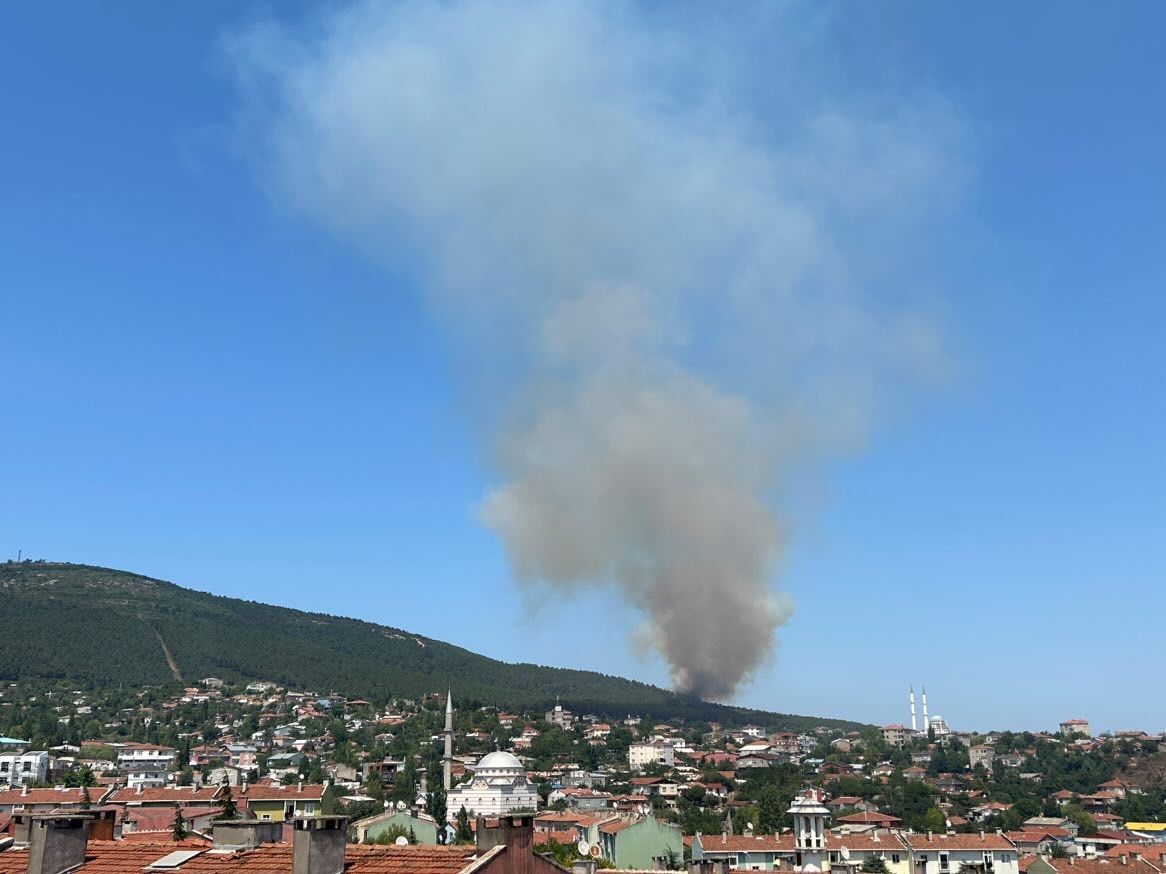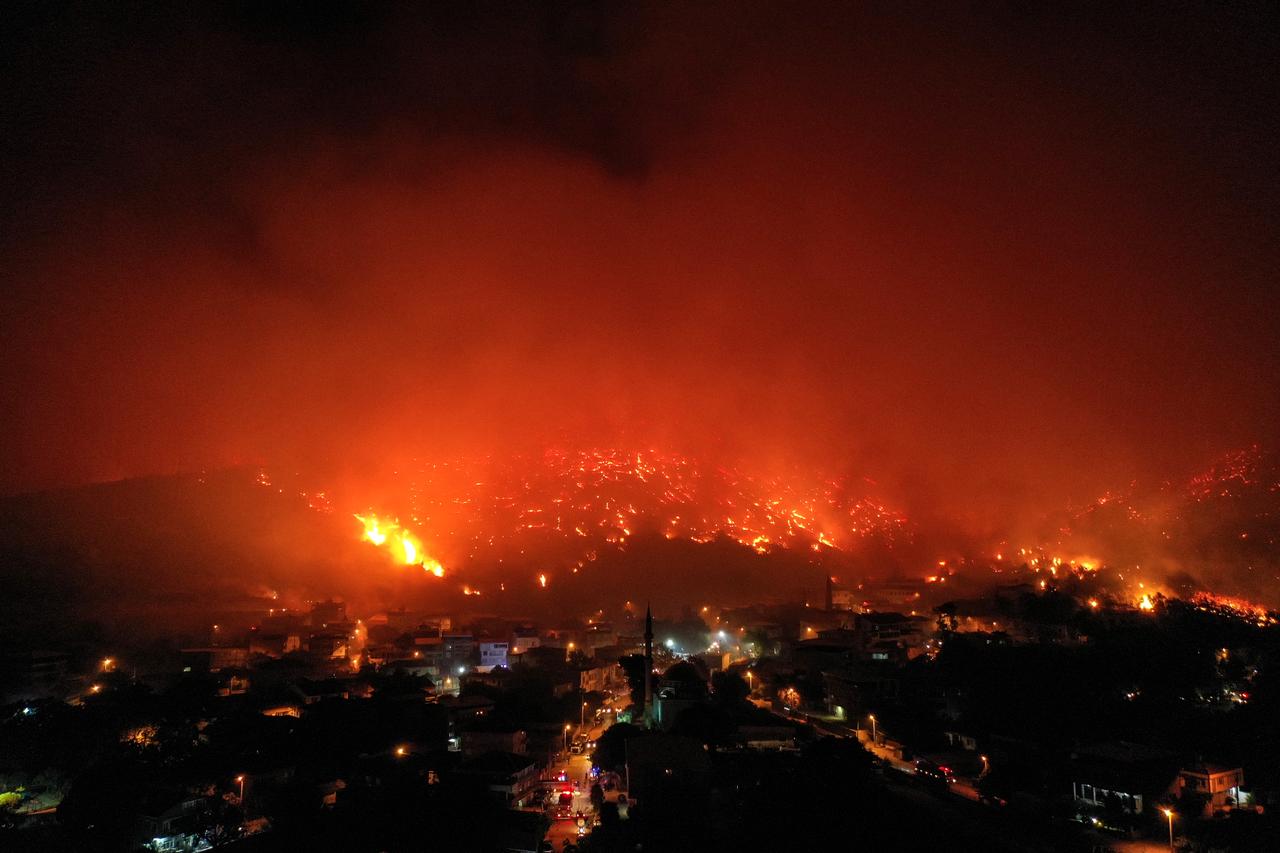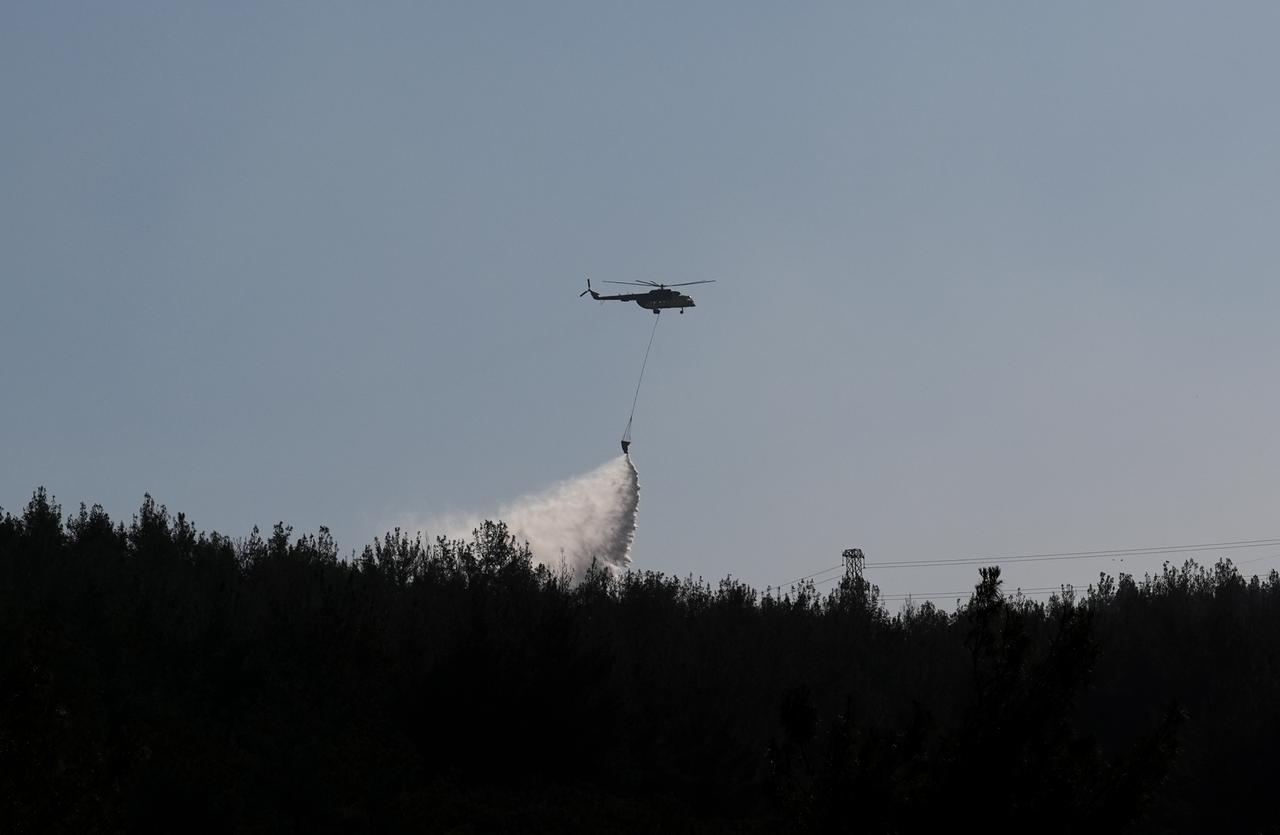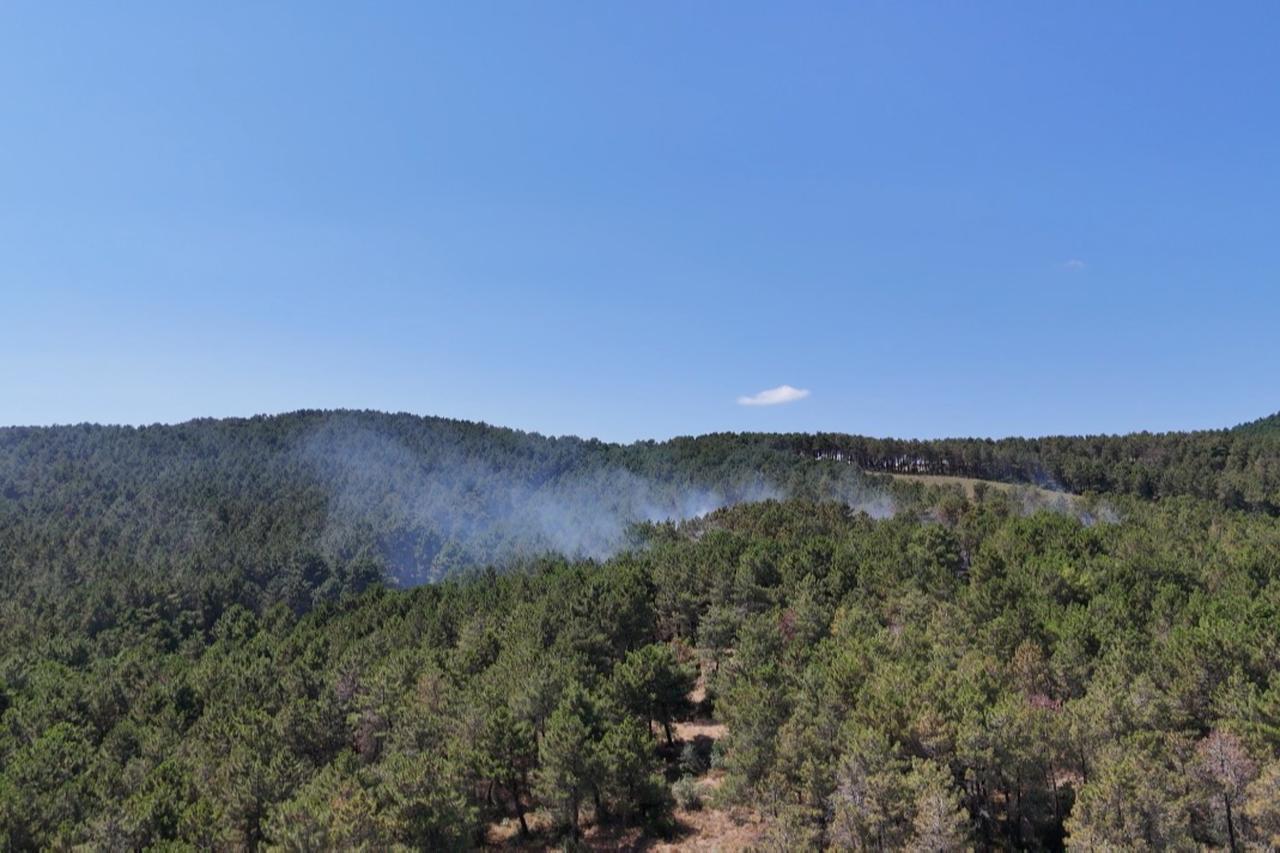
Authorities in Istanbul have imposed a citywide ban on fireworks, signal flares, torches, and similar incendiary materials from July 29 to Oct. 28.
The decision, announced by the Istanbul Governor’s Office, comes in response to a sharp increase in wildfire risk due to extreme heat, low humidity, and strong winds affecting many regions of Türkiye.
The ban adds to an earlier restriction issued in June, which prohibits public access to forested areas across the city between June 23 and Oct. 15. Enforcement will be carried out by police, gendarmerie, and other relevant units. Legal action will be taken against individuals or businesses that violate the order.

Aydos forest fire – July 12
In Pendik district’s Aydos Forest, a fire broke out on July 12 around midday, originating from an unidentified source along a forest access road. Initial response came from local fire crews, while an aerial unit was dispatched from Sariyer to assist from above. Reinforcement teams from nearby districts joined the effort. The blaze was brought under control within a short time, followed by cooling operations.
Beykoz fire – July 28
Another notable incident occurred in Cigdem neighborhood of Beykoz on July 28, reportedly sparked by a signal flare. It, too, was quickly extinguished before causing major damage.
Nationwide, Türkiye has witnessed a devastating wildfire season. A total of 3,242 fires have been reported, including 1,382 in forested areas. More than 80,000 hectares of land have been scorched, and fires have affected 53 provinces.
At least 50,000 residents have been evacuated, 17 people have died, and 96 others have been injured. Livestock losses exceed 84 animals. Officials attribute 98% of these fires to human causes, including discarded cigarettes, campfires, welding tools, and deliberate arson. Only 2% are considered natural in origin.

Izmir has suffered the largest losses, with over 26,000 hectares burned and the temporary suspension of operations at Adnan Menderes Airport. In Kahramanmaras, over 1,500 hectares were affected, leading to the evacuation of 130 people.
Other fire-affected provinces include Karabuk, Bursa, Mugla, Antalya, and Mersin, where large-scale firefighting operations are ongoing.

In response, Türkiye has deployed 27 firefighting aircraft, 105 helicopters, 14 drones, and more than 6,000 ground vehicles. Over 25,000 personnel are engaged in fire suppression efforts. The government reports an average detection time of two minutes and an average response time of eleven minutes after a fire is spotted.

Under Türkiye’s forest protection laws, areas destroyed by fire cannot be rezoned for construction and must be reforested.
Officials reaffirmed the state’s long-term commitment to replanting efforts, with 500 million saplings planted annually to regenerate affected ecosystems.